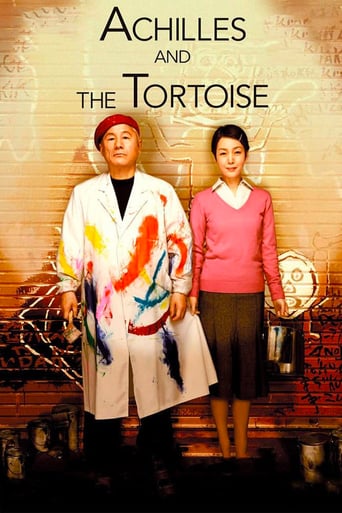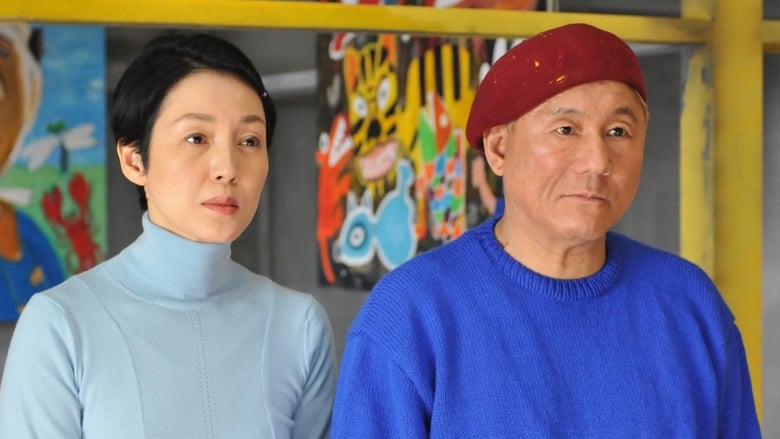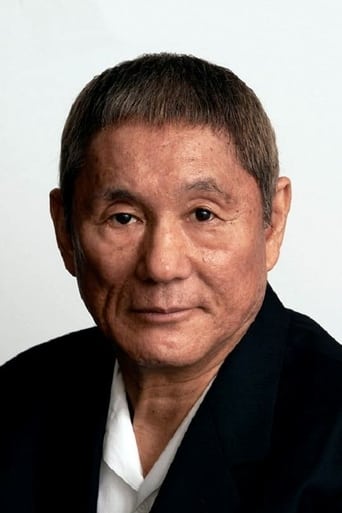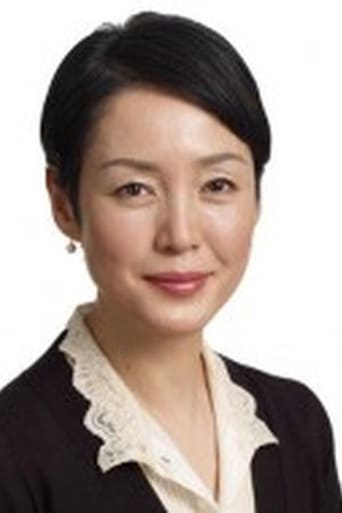

Achilles and the Tortoise (2008)
Machisu is a painter. He never had the success he thinks he is entitled to. Regardless of this, he always remains trying to be successful. His wife Sachiko keeps supporting him, despite all setbacks.
Watch Trailer
Cast


Reviews
Another relentless study by Kitano of an artist with no talent who refuses to give up, this goes on far too long and bludgeons the viewer with its relentless picture of a helpless sycophant trying to become a success by imitating his betters or copying trends that have just gone out of style. There is a disconnect between the early passages of the artist as a boy, which are fable-like, haunting, and touching (but also droll and odd) and the segments of the artist as an adult and "old" man (when Kitano himself takes over), the latter being simply a series of conceptual put-ons. Throughout the film is hurt by its suggestion that art of limited merit has no merit at all; that a child artist wouldn't produce anything of interest. And its later scenes are increasingly brutal and macabre. Another example of Kitano's limits as an "auteur." His work is distinctive and persistent, but there is a coldness, even a cluelessness, about it that is unappealing. The Allociné critic rating of 3.0/70 is full of raves, showing Kitano's strong "auteur" status among the French. Seen in Paris in April 2010.
Itano Takeshi's movie reminds us two facts that unfold from the same root: timocracy. Timocracy, from Plato, is the rule of the worthy. I take this as distinct from plutocracy, which is the rule of the wealthy. In societies where self worth is overlapped with economic value, than all plutocracy is also timocracy. Since Van Gogh (Heinich), it is clear that worth in arts stems from self-sacrifice for a superior cause: art itself. But this is not just "art-for-art-sake" (Bourdieu) as if an individual resigned to poverty is able to finally pursue his true inner calling. Machisu Kuramochi (Takeshi) is always checking his last oeuvres with a merchant, the true source of recognition. Impossible to achieve such recognition, the quest resembles Achiles's towards the turtle: although it is a farce (the intrinsic worth in art) it is (because of it) impossible to achieve. Self-destruction is tried (again we must think of Van Gogh), but here Achiles achieves the turtle. It is granted to the artist some human condition. The most touching scene is Kuromochi taking the "sudary" from his daughter's face. Art as sacred and sacrilege is all articulated in few minutes on screen.
"Achilles" is the last of the Kitano's trilogy about the joys and woes of a creative artist. I have watched the second, "Glory to the filmmaker" (2007) but not the first, "Takeshis" (2005). "Glory" was a little disappointing, mainly because it was unfocused, seeming to wander and meander without s clear course. "Achilles" is anything but unfocused.While this movie is generally labelled a comedy, the first half comes off like a Dickensian tale of an orphan. Coming from a well-off family, little Machisu finds himself plunged through a series of misfortunes – the family financial disaster, suicide of father, and then mother, an existence of drudgery under an unsympathetic uncle, then the orphanage, and finally making a living at a lowly position. The tale is told, however, with little poignancy. One reason is that the misery our protagonist goes through is nowhere near an average Dickensian orphan's. He has schooling, a kindly aunt and a very reasonable employer, just to name a few blessings. But the most important factor is Machisu himself.The taciturn child has a singular passion for painting to the extent that he at times almost seem autistic, although he is in fact not. But painting is such a consuming passion that nothing else counts. This is portrayed with remarkable consistency by the three actors from early childhood to young manhood, when he marries an insanely (just a manner of speaking) supporting girl who not only understands, but also embraces his addiction for painting. At this point, the comedy takes over, mainly generated by Machisu and his cohorts in their various imaginative attempts at creative painting. Hilarity ensues, but also some lethal consequences, literally. There is black comedy, but comedy nonetheless.In comes Kitano, playing Machisu at middle age (and wife played by Kanako Higuchi, whose heart-wrenching performance in "Memories of tomorrow" I still remember) with a daughter in late teens. Those who are familiar with Kitano's work will appreciate how well this character fits with his best-known screen persona – the expressionless face this is full of expressions, if you know what I mean. By this time his passion has gone completely out of control, and all hell breaks loose. I shall not, of course, disclose the ending. Better than "Glory", this is not Kitano's best. Still, it has all the good old Kitano ingredients such weird humour and underplayed characters. The profusion of colour scheme (often, but not always, through the paintings themselves) reminds me of "Dolls" (2002) which he directed but did not act in. On the title, the paradox of Achilles and the tortoise, often used as an introduction to calculus, is adopted here to depict Machisu's perpetual pursuit of the elusive art of painting.
This should be required viewing for everyone in the "art" world. Kitano skewers global modern art culture and also makes fun of his own work.The story is simply of an artist from childhood to "middle age" (which seems to be around 62) as he tries to be a successful artist. He starts out as an untrained "primitive" but with a certain talent for texture and color. He is insulted at every turn while we get to see the "good" art by "masters" which are all really, really bad. Unfortunately the artist gets progressively worse as he takes advice from gallery owners on how to make his work "sellable", which it never is. Every time the work gets better, he's advised to go in a different direction. Many mildly humorous situations arise but the film isn't going for outright laughs most of the time. The scenes of the "middle aged" artist (played by Kitano) getting his supportive wife to make his art are very long, get progressively cruel (probably part of the point) and could have been cut down a little. The issue of autism isn't directly addressed but the character certainly exhibits symptoms.This is a very good film although a little long. It may not be as good to someone who has no experience with the art world of today. Kitano created all the art in this film, good and purposely bad.




